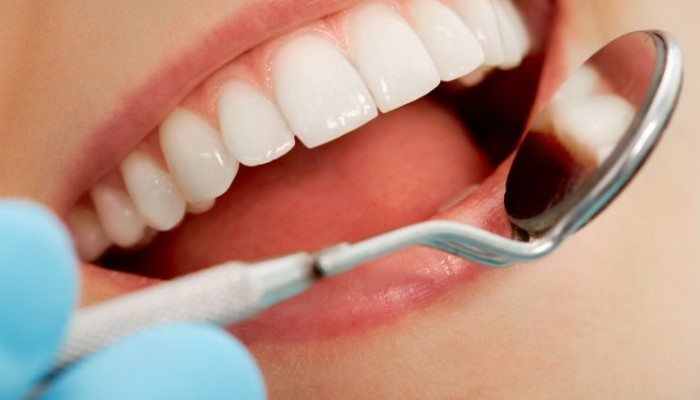Many people need dental treatment through the SUS, but do not know how the system offers this service to the population. The Unified Health System (SUS) is the largest public health system in the world. It was created to guarantee universal and equal access to people, regardless of their social status. However, the reality is that there are still many people who do not have access to healthcare services, especially dental services.
However, part of the Brazilian population has little access to quality dental services. This happens because private treatments are often expensive and do not fit into family budgets. Fortunately, people can count on dental treatment through the SUS and guarantee some procedures, this way, people can smile again with more security. Oral health is very important, and lack of care can cause several problems.
Dental treatment through SUS is a reality for many Brazilians. Therefore, this article aims to present dental treatment through the SUS and show how it can benefit the Brazilian population. In addition, some tips will be presented for those who wish to obtain dental treatment through the SUS. Finally, we will also show you how the Conecte SUS application works.

How does dental treatment through SUS work?
The Unified Health System (SUS) is the largest health system in the world, serving the Brazilian population universally and free of charge. Dentistry through the SUS aims to guarantee access to oral health for the population, promoting the prevention, diagnosis and treatment of oral diseases.
In Brazil, Dentistry through the SUS is regulated by Ordinance No. 2,488/2011, which establishes standards for the organization and operation of oral health services within the scope of the Unified Health System (SUS). The ordinance defines that oral health services must be provided through an integrated health care network, made up of professionals from different dental specialties.
Dental services provided by the SUS are divided into three levels:
First Level – Basic Care;
Second Level – Specialized Care;
Third Level – Tertiary Care.
Choosing the appropriate level of care depends on the nature of the disease and the complexity of the case. In Primary Care, professionals carry out the prevention and diagnosis of oral diseases, in addition to carrying out simple treatment procedures. In Specialized Care, professionals perform medium complex procedures, such as oral surgeries and orthodontic treatments. Finally, in Tertiary Care, professionals perform the most complex and sophisticated procedures, such as, for example, dental implants.
If you need dental treatment through the SUS, the first step is to look for the Basic Health Unit closest to your home. If this unit does not have a dentist to serve the public, professionals can refer the patient to the partner dental clinic in the city.
Discover the Brasil Sorridente program
The Brasil Sorridente Program was created in 2004 by the Ministry of Health, with the aim of guaranteeing universal access to oral health. The program focuses on promoting oral health, preventing and treating oral diseases. The Brasil Sorridente Program targets children aged 0 to 14 and elderly people over 60, who are the groups most vulnerable to oral diseases.
The program also offers free care in Basic Health Units (UBS), where preventive procedures take place, such as teeth cleaning and plaque scraping. Furthermore, it is also possible to treat more serious diseases, such as cavities and periodontitis.
However, it is important to highlight that the Brasil Sorridente Program is not limited to just offering free services. It also aims to educate people about healthy habits to maintain good oral hygiene and prevent disease.
Find out if you are entitled to dental care through the SUS
One of the main achievements of the SUS was the creation of the Family Health program (PSF), which aims to strengthen preventive actions and promote improvements in people's quality of life. Another important program created by the SUS is the National Primary Care Program (PNAB), which aims to expand access to medical consultations and exams at health centers.
In addition, SUS also offers other services, such as hospital care, laboratory services and pharmaceutical services. One of the areas that has benefited most from advances in the SUS is dentistry. In recent years, the number of people who have access to dental treatments through the SUS has grown considerably.
Currently, everyone who has a SUS card is entitled to free dental care at basic health units (UBS). Furthermore, many public hospitals already have complete dental services to serve SUS patients.
Connect SUS application
The Conecte SUS Application is a mobile application developed to facilitate access to information from the Unified Health System (SUS). It was created by the Ministry of Health with the aim of improving communication between citizens and the SUS, in addition to providing information about the services that the SUS offers.
The Conecte SUS Application is available free of charge for devices Android and iOS, and has several features, including:
- Access to the main news about SUS;
- Search for health units by address or name;
- Scheduling and canceling medical appointments;
- Requesting and monitoring laboratory tests;
- Receiving alerts about vaccination;
- Information about diseases and their prevention methods.
Finally, after installing the app, the user will be able to search for the health services closest to their location, in addition to having access to the main news about the SUS and the Ministry of Health's social networks. It is also possible to register with Conecte SUS to receive push notifications about the system's main news.
Conclusion
The Unified Health System (SUS) is Brazil's public health system. It emerged in 1988, with the aim of guaranteeing universal and equal access to people, regardless of their socioeconomic situation. Since then, the SUS has expanded and improved its structure to meet the needs of the Brazilian population. Currently, the SUS is considered one of the best health systems in the world. Now that you know how to get dental care through the SUS, find out about other useful services in the “benefits” from our website.



